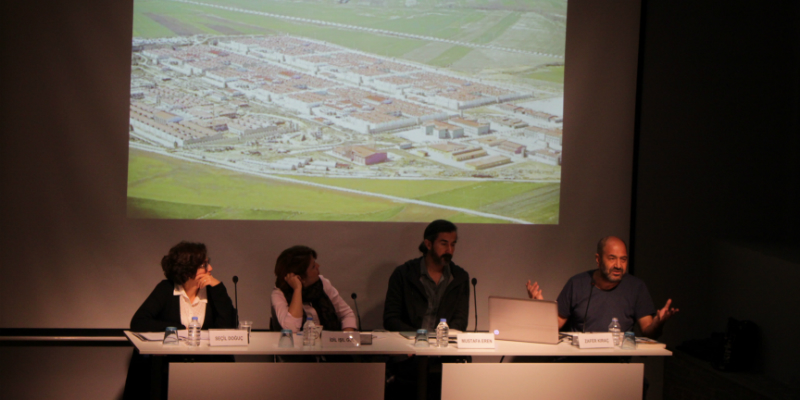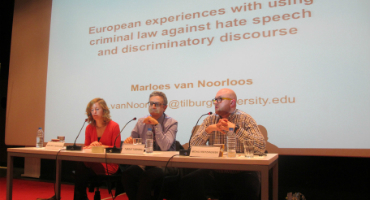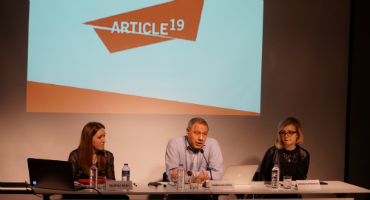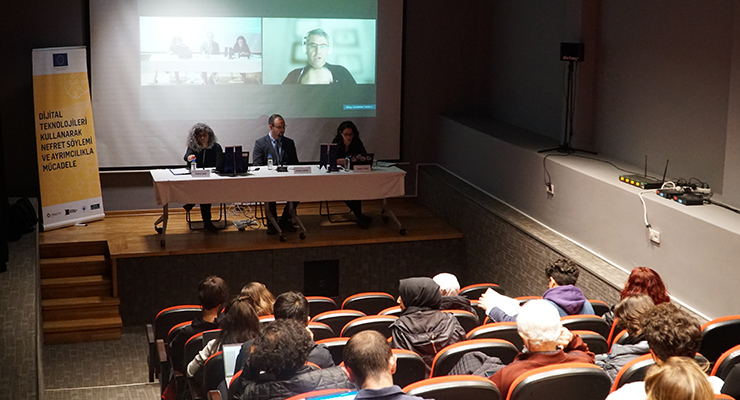“Prisons, Prisoners and Discrimination in Turkey” panel, organized by ASULIS Discourse, Dialogue, Democracy Laboratory of the Hrant Dink Foundation, was held in Anarad Higutyun Building Havak Room on October 27th 2016. Zafer Kıraç and Mustafa Eren from Turkey’s Center for Prison Studies (TCSP) and Seçil Doğuç from Sociology Department of Galatasaray University shared their ideas and experiences regarding the discriminatory practices of the prison system in Turkey in the panel, moderated by Assistant Professor Idil Işıl Gül from Law Faculty at Istanbul Bilgi University.
As the first speaker, Zafer Kıraç started his presentation arguing that access to campus type prisons is difficult for prisoners’ relatives, lawyers and members of civil society. Emphasizing how the claim that the number of prisons are decreasing in Turkey is misleading, Kıraç pointed at the increasing number of prisoners and total bed amount in prisons. After drawing attention to the similarity between campus type prisons and close spaces where stuff is piled up, he said that they preferred to use the term ‘warehouse’ for these kinds of prisons. Finally, Kıraç remarked that the number of prisoners increases as a result of the rising number of prisons and total bed amount whereas the prison population decreases with the closure of prisons.
After Kıraç’s presentation, Mustafa Eren began his speech by speaking about the history of prisons both during the Ottoman Empire and the Republican period. He pointed out that in the past, there used to be a prison in each district which was a more humane practice compared with the current one. Eren stated that prisoners serving their time in their own district live under more humane conditions as opposed to those in campus type prisons. Arguing that prisons in Turkey have been designed for ‘healthy’, Sunni, Muslim, adult and heterosexual men serving a determinate sentence, he pointed out how those outside of this category are exposed to more discrimination.
Finally, the last speaker Seçil Doğuç took the floor to discuss distinctive problems of women inmates and the discriminative practices towards them. Doğuç mentioned that almost every practice and measure is geared towards the purpose of harming prisoners’ personality. Stating that as of 1970s, a state policy emerged which assesses prisoners groups according to the risks they ‘have’, she also argued that a more punitive and security-focused system has come into prominence after 2001 in Turkey. After touching upon the increasing risk management and the creation of higher risk levels all around the world, Doğuç mentioned that prisoners committing crime against the state are categorized as ‘dangerous prisoners’ sentenced for organized crimes. Additionally, she suggested the assessment of special needs and risks of each newcomer and the renewal of this assessment every six months in order to make sure that inmates in higher risk group are incarcerated under conditions as similar as possible to those of normal regime.
Having the final say, the moderator İdil Işıl Gül emphasized that the actual imprisonment system in Turkey is the one that ignores the individual and is adjusted in a way to protect itself from the individual. In the following question-answer session, panelists and audience discussed issues such as the conditions of prisoners with special needs, aggravated life imprisonment and the failure to satisfy the communication needs of inmates.





